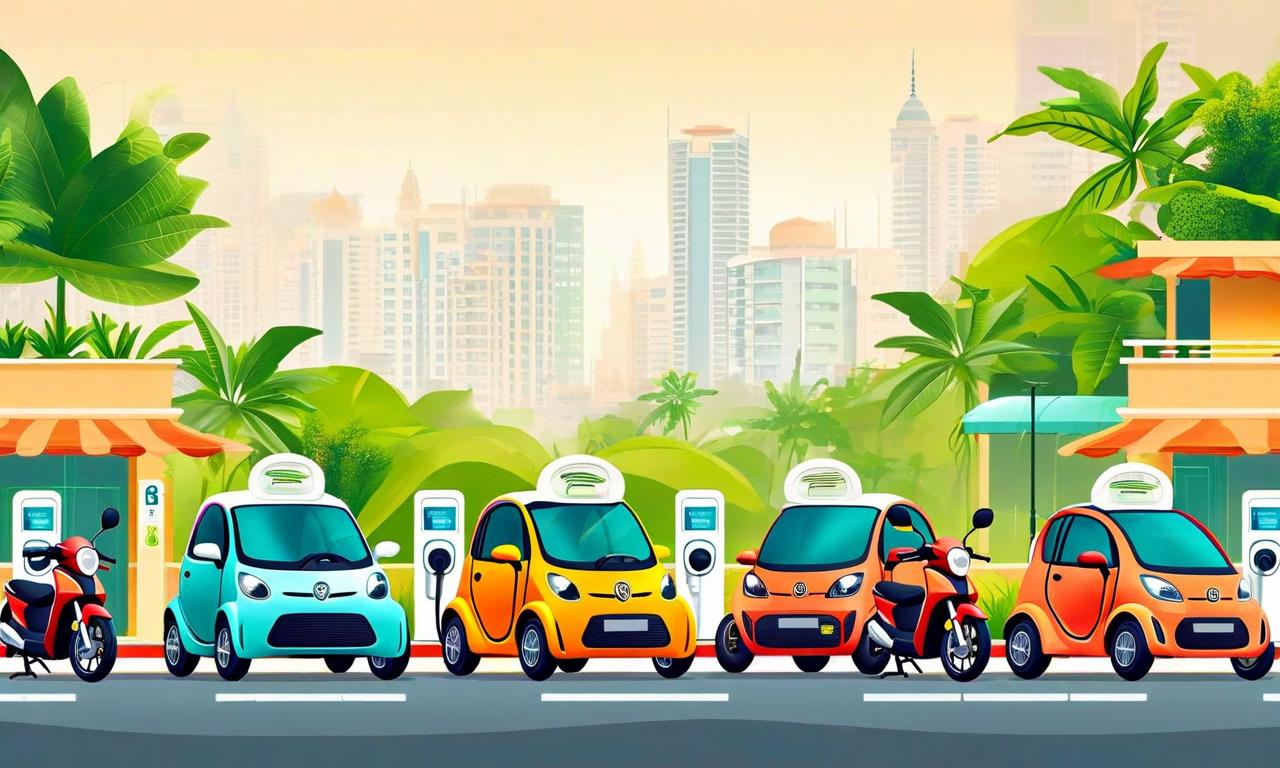India Considers GST Cut on Small Hybrid Cars and Motorcycles to Boost Auto Sector
The Indian government is contemplating reducing the Goods and Services Tax (GST) rate for small hybrid cars and many motorcycles from 28% to 18%. This potential tax cut aims to increase affordability, boost hybrid technology adoption, and stimulate the motorcycle market. The move could lead to sales growth, market expansion, and more competitive pricing in the automotive sector. It may also have broader economic implications, including increased consumer spending and a boost to manufacturing. The proposal aligns with India's goals to reduce carbon emissions and promote cleaner transportation options.

*this image is generated using AI for illustrative purposes only.
In a move that could potentially revitalize the Indian automotive sector, the government is contemplating a significant reduction in the Goods and Services Tax (GST) rate for small hybrid cars and many motorcycles. The proposed change would see the tax rate drop from the current 28% to 18%, making these vehicles more accessible to a broader range of consumers.
Potential Impact on Affordability
The proposed GST reduction is expected to have far-reaching implications for both consumers and the automotive industry:
- Increased Affordability: The 10 percentage point reduction in GST could translate to lower prices for small hybrid cars and many motorcycles, making them more affordable for Indian consumers.
- Boost to Hybrid Technology: By specifically including small hybrid cars in this tax cut, the government appears to be encouraging the adoption of more fuel-efficient and environmentally friendly vehicles.
- Motorcycle Market Stimulus: The Indian two-wheeler market, one of the largest in the world, could see increased activity with potentially lower prices across many motorcycle models.
Industry Implications
The automotive sector, which has faced challenges in recent years, might find new momentum with this tax adjustment:
- Sales Growth: Lower prices could stimulate demand, potentially leading to increased sales volumes for manufacturers of small hybrid cars and motorcycles.
- Market Expansion: The tax cut might enable automakers to reach new customer segments who were previously priced out of the market.
- Competitive Pricing: Manufacturers may have more flexibility in pricing strategies, potentially leading to a more competitive market landscape.
Economic Considerations
While the primary aim appears to be boosting the automotive sector, this move could have broader economic implications:
- Consumer Spending: Increased affordability of vehicles could free up disposable income, potentially benefiting other sectors of the economy.
- Manufacturing Boost: Higher demand could lead to increased production, potentially creating more jobs in the automotive manufacturing sector.
- Environmental Impact: Encouraging the purchase of hybrid vehicles aligns with India's goals to reduce carbon emissions and promote cleaner transportation options.
As the government considers this significant tax adjustment, stakeholders across the automotive industry will be closely monitoring developments. The potential GST reduction represents a strategic move to stimulate one of India's key industrial sectors, with possible ripple effects throughout the economy.
It's important to note that this plan is still under consideration, and the final decision and implementation details are yet to be announced. Industry experts and consumers alike will be eagerly awaiting further information on this potentially transformative policy change.
























